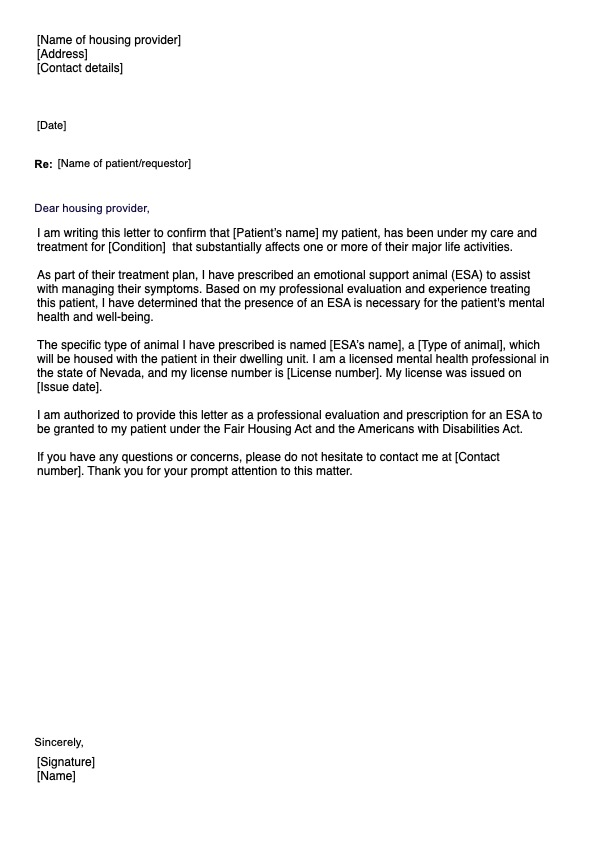ESAs provide emotional support without specific training, unlike service dogs or animals trained to perform specific tasks related to a person's disability alone with extensive training. ESAs are recognized for the positive impact of their therapeutic presence rather than their ability to perform tasks.

ESA Letter Nevada
Get a free ESA letter template for Nevada to help clients access housing accommodations and ensure compliance with federal and state ESA laws.
ESA Letter Nevada Template
Commonly asked questions
Under the Federal Fair Housing Act, landlords cannot deny housing to someone with a service dog with a valid ESA letter, except in specific circumstances where the animal poses a direct threat or an undue burden. The FHA also prevents landlords from discriminating against tenants with disabilities related to ESAs.
Generally, there are no breed or weight restrictions for ESAs in Nevada. However, individual housing providers may have policies regarding animal size and breed. It is important to check with the specific pet housing or provider for any restrictions, pet policies, or requirements.
EHR and practice management software
Get started for free
*No credit card required
Free
$0/usd
Unlimited clients
Telehealth
1GB of storage
Client portal text
Automated billing and online payments











